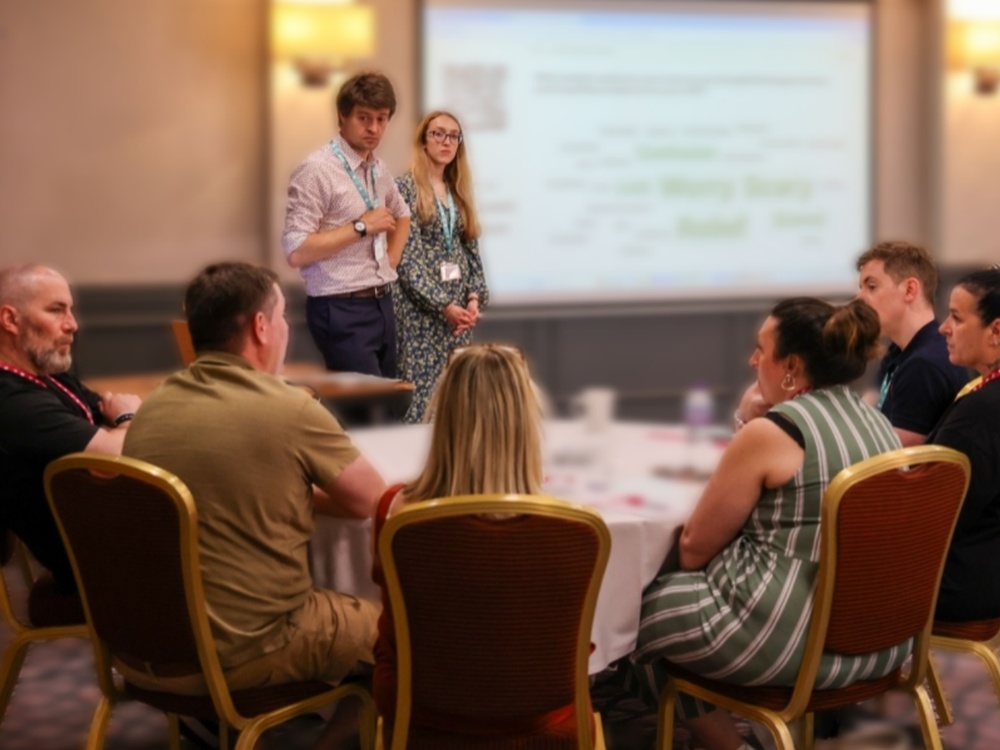At this year’s Lily Family Support Weekend in June, members of the MitoCAMB Clinical Mitochondrial Research Team at the University of Cambridge held a focus group to inform families about the centre and its key aims. The team were keen to engage patients early in the centre’s development to help shape research and assess how they can best communicate ongoing updates about the centre to the mito community.
This was an exciting opportunity for families directly affected by mitochondrial disease to meet some of the people leading this pioneering project and discover more about how the multi-site centre will take shape. It was an interactive and highly productive session where everyone was given the chance to have their say.
The project will be led by researchers from Cambridge, Newcastle and London, together with several other teams across the UK. To recap, the centre’s three main aims will be:
- to increase diagnosis of mitochondrial disease
- to establish a collection of biomarkers to more easily measure the effectiveness of new treatments for mitochondrial disease
- to deliver new treatments for the disease.
Our role in the project will be around patient recruitment, and Patient and Public Involvement and Engagement (PPIE) – that is, ensuring those who have lived experience of mitochondrial disease are able to work in active partnership with researchers. As well as looking for research participants living with mitochondrial disease today, we’re keen for patients, parents and carers to be involved in shaping the project as a whole. We want to make sure patients are consulted about any research coming out of the centre, and have the opportunity to guide the overall strategy.
The 14 parents involved in this initial workshop, which included some adults with mitochondrial disease, certainly set the ball rolling with their thoughts. The Cambridge team reported afterwards that they received plenty of invaluable contributions, and were grateful to everyone who participated.
Increasing diagnosis rates
We already know that mitochondrial disorders can sometimes be difficult to diagnose, but recent advances have improved this considerably. The team now aim to bring these advances to many more patients across the UK. However, even when a diagnosis is made, there are issues around the limited amount of information patients receive, which came through loud and clear at this session.
Important feedback was given about how parents dealing with a diagnosis of mitochondrial disease often feel lost and alone. Encouragingly, as part of the new centre’s remit, there are plans for the development of resources for newly diagnosed patients, as well as for clinicians involved in delivering those diagnoses, so already the patient voice is being acknowledged.
Establishing biomarkers
Biomarkers are measurable signs of a disease that may also be used to see how well the body responds to a treatment. So far, there are no reliable biomarkers for mitochondrial disease, but the team plan to develop and test new biomarkers, in particular using scans of the brain, heart, muscle or eyes.
The families had questions around whether new methods would be as effective as current procedures such as heart MRIs, eye tests and muscle biopsies, something the team are hoping to understand through the research studies that are planned. The team clarified that, where possible, data already collected from patients as part of their standard care would be used alongside new, less invasive methods to reduce any additional burden to patients.
Delivering new treatments
And finally, the subject of new treatments for mitochondrial disease was greeted with cautious optimism as many within the group felt this was a new and positive change in the field of mitochondrial research. The ambition of the centre is to move new treatments closer from the bench to the bedside, in the hope that they eventually become the care pathways of the future for mito patients.
Some of the treatments that will be tested include gene therapies for specific mitochondrial conditions, and using nutritional supplements that are recognised to have potential benefits in mitochondrial function. Some of these therapies will also be offered to children with mitochondrial disease.
Everyone who took part in the workshop saw the benefit of voicing their opinion and appreciated the chance to have their input. Bringing together all aspects of the disease is highly motivating for everyone involved and will be key to any success going forward.
We’ve been saying for a long time that involving those directly impacted by mitochondrial disease is the best way to make a difference. Together, we will ensure the research that takes place at this new centre is meaningful and beneficial to the people living with the condition every day.
So if you’re reading this and you or someone you care for has been affected by mitochondrial disease, this is your chance to have your say and make a difference. Please sign up today to join our EPIC Expert Patient Input Committee if you’d like to be involved in shaping the future of mitochondrial disease research. Because only together can we ensure this new centre works effectively towards finding treatments and that all-important cure.

